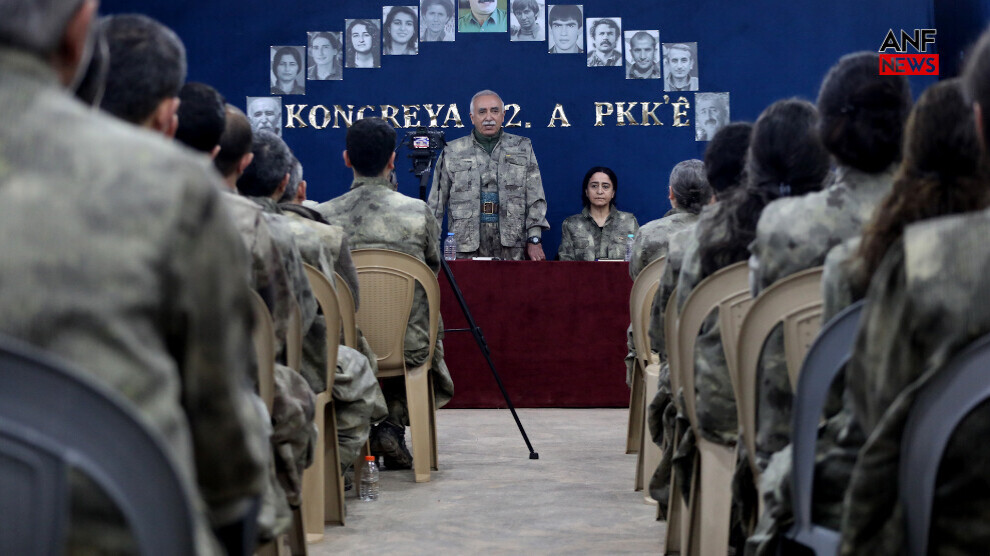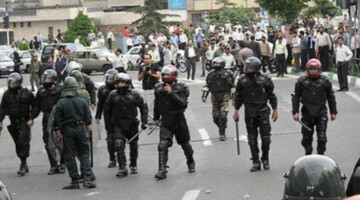The Kurdistan Workers' Party (Partiya Karkerên Kurdistan – PKK), which held its founding congress in the village of Fis in the Lice district of Amed (Diyarbakır) in 1978, has left its mark on Kurdistan and the Middle East for half a century. The PKK held its 12th Extraordinary Congress in the Medya Defense Zones in southern Kurdistan (northern Iraq) on May 5-7.
Formed in the 1970s under the leadership of Abdullah Öcalan, a group of young people came together as a student organization. Over the past 52 years, the group has left an indelible mark on Kurdistan, Turkey, and the Middle East.
‘A radical intervention in history headed downward’
Initially referred to as the “Apocular,” (Apoists), the movement emerged during a period when everything related to Kurdish identity, language, and culture was subjected to denial and annihilation attacks. Leader Apo (Abdullah Öcalan) made a historic breakthrough, describing it as “a radical intervention in history headed downward.”
In 1973, during Newroz, Leader Apo gathered with a group of friends at the Çubuk Dam in Ankara and shared his determination and thesis that “Kurdistan is a colony” with his friends.
‘A country that no one even dared to mention the name’
“We took on the patriotism of a country that no one even dared to mention the name,” said Leader Apo, who, over 52 years of relentless struggle, expanded the struggle by basing it on the dialectic of constant change and transformation.
Alongside political, social, and intellectual initiatives and breakthroughs, the principles of constant change and transformation were also applied to the tools leading toward goals such as peace, freedom, and a democratic society.
The venue for these structural, programmatic, and organizational changes and transformations was the party congresses.
PKK Congresses from past to present
Kurdish People's Leader Abdullah Öcalan also set a new process of change and transformation for the movement with his ‘Call for Peace and a Democratic Society’ on February 27, 2025.
Below is a list of the congresses held by the PKK since its founding congress on November 27, 1978, in the village of Fis, Lice district of Amed, and the key issues discussed at those congresses:
Founding Congress
The PKK was founded at a congress held in the village of Fis, in the district of Lice, Amed, on November 26-27, 1978, under the leadership of Öcalan.
At the congress, which was attended by 22 people, the party's program, regulations, and manifesto were adopted. Öcalan was elected as the party's secretary general.
Shortly after the PKK was founded, the coup d'état of September 12, 1980 took place. Many of the party's founders and leaders were imprisoned.
The prison resistance of the PKK's vanguard cadres and sympathizers dealt a severe blow to the coup plotters and demonstrated the PKK's indomitable will.
Second Congress: The congress that launched the guerrilla struggle
The PKK's second congress was held on August 20-25, 1982, at a camp belonging to the Palestinian People's Liberation Front on the Syrian-Jordanian border, seeing the participation of 65 delegates.
The congress made a significant decision to “dispose of refugee status and return to the country to launch a guerrilla struggle”.
Third Congress: Declaration of the ARGK
The PKK's third congress was held between October 25 and 30, 1986, at the Helvê camp in Lebanon.
Following the August 15, 1984 offensive, the Congress decided to form an army and declared the Kurdish People's Liberation Army (Artêşa Rizgariya Gelê Kurd – ARGK).
Fourth Congress: The Guerrilla Congress
The PKK's 4th Congress was held in Heftenîn between December 26 and 31, 1990. Due to the ARGK establishing itself in Kurdistan, this congress was defined by Öcalan as the “guerrilla congress.”
Following the congress, which coincided with the collapse of real socialism and the Gulf War, the years that followed saw the peak of the war in Northern Kurdistan.
Fifth Congress: Organizational change
The PKK's fifth congress was held in Heftenin between January 8 and 27, 1995. At the congress, the general secretary position was replaced by a general presidency system, and changes were made to the party flag as well as its ideological and organizational structure.
Sixth Congress: The congress during the conspiracy
The 6th Congress, held in Xinêrê from January 12 to February 18, 1999, coincided with the international conspiracy against Kurdish People's Leader Abdullah Öcalan.
Seventh Congress: The first steps toward a paradigm shift
An extraordinary congress was convened on January 2–23, 2000. Following the 7th Congress, which took place in Qandil with the participation of 197 delegates, the first steps toward a paradigm shift began to be taken.
Eighth Congress: Internal party issues
The 8th Congress was held in Qandil between April 4 and 10, 2002, with the participation of 285 delegates. The Congress took place in an atmosphere marked by internal party issues and the emergence of liquidationist tendencies.
While some changes were made at the congress based on Öcalan’s defense of the transition from the Sumerian Priesthood State to a Democratic Civilization, these changes were insufficient for a profound transformation.
Ninth Congress: The congress for the reconstruction of the PKK
In response to the ideological and intellectual crises that emerged within the party following the 8th Congress, Öcalan initiated the process of reconstructing the PKK.
The PKK's 9th Congress was held in Xinêrê from March 28 to April 4 with the participation of 205 delegates. While the congress witnessed significant organizational consolidation, the desired level of internalization and implementation of the paradigm was not achieved.
Tenth Congress: Deepening the paradigm
The PKK's 10th congress was held in Qandil between August 21 and 30, 2008. The congress focused on deepening the new paradigm.
Eleventh Congress: Democratic Resolution process
The 11th Congress was held at a time when the crisis in the Middle East, particularly in Syria and Iraq, had deepened and ISIS attacks had spread throughout Kurdistan.
Held in Xinêrê from September 5 to 13, 2013, with the participation of 125 delegates, the congress marked a significant step toward a democratic resolution to the Kurdish question in Turkey, including the declaration of a ceasefire and the withdrawal of guerrilla forces from Northern Kurdistan.
During the continued talks, the Turkish state approved the “Decomposition Action Plan” at its National Security Council meeting on October 30, 2014, and implemented it shortly thereafter.
Twelfth Congress: Construction of peace and a democratic society
The PKK's 12th Extraordinary Congress took place following a decade of intense conflict, following Öcalan’s ‘Call for Peace and a Democratic Society’ on February 27, 2025.
In the 47 years since the PKK's first congress, which was described as a “radical intervention in history,” the struggle waged at great cost has largely defeated the policies of denial and annihilation of the Kurdish people.
Having successfully fulfilled its historical mission, the PKK adopted decisions at its 12th Congress to pave the way for the construction of peace and democratic society and to mark a new beginning.
At the congress, it was decided that “with the practical process to be managed and carried out by Leader Öcalan, the PKK's organizational structure would be dissolved and armed struggle would be ended, thereby ending the activities carried out under the name of the PKK.”














